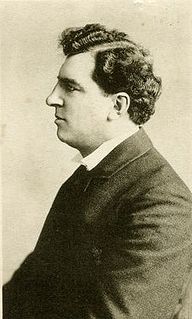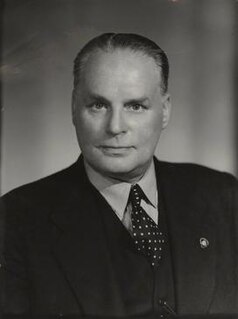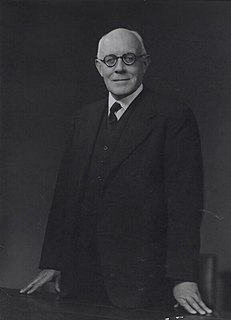The Penistone by-election, 1921 was a by-election held on 5 March 1921 for the British House of Commons constituency of Penistone in Yorkshire.
The Louth by-election, 1921 was a by-election held on 22 September 1921 for the British House of Commons constituency of Louth in Lincolnshire.

Sir Frederick Hindle was a Liberal Party politician in the United Kingdom, who served as Member of Parliament (MP) for the Darwen constituency in Lancashire in the short 1910 parliament and from 1923 to 1924.
Stephen Noel Furness, was a British barrister and Liberal National politician. He was Member of Parliament for Sunderland from 1935-1945. From 1938-1940 he was a junior Lord of the Treasury.

George Hay Morgan was a British Liberal Party politician.
The Chorley by-election was a Parliamentary by-election. It returned one Member of Parliament to the House of Commons of the United Kingdom, elected by the first past the post voting system. Although it was a safe Unionist seat which was held, the reduction in the Unionist majority was notable.
The Woodbridge by-election of 1920 was held on 28 July 1920. The by-election was held due to the resignation of the incumbent Coalition Unionist MP, Robert Francis Peel. It was won by the Coalition Unionist candidate Sir Arthur Churchman.
The Buckrose by-election, 1926 was a parliamentary by-election for the British House of Commons constituency of Buckrose, Yorkshire on 5 May 1926. This was the first by-election to take place during the General Strike.
The Croydon South by-election, 1919 was a parliamentary by-election for the British House of Commons constituency of Croydon South on 14 November 1919.
Sir John Douglas Young, was a British judge and Liberal Party politician.

William Rowley Elliston OBE,, was a British judge and Liberal Party politician.
Reverend Dugald Macfadyen MA, FRHistS,, was a British Clergyman, Liberal Party candidate and writer.
Henry Paterson Gisborne JP, was a prominent British Solicitor and Liberal Party politician.

Edwin Bayliss OBE, was a British politician who was notably Chairman of the London County Council.
Major Sir Geoffrey Ernest Tritton CBE DL, was a British businessman, soldier and Liberal Party politician, who later joined the Conservative party.
His Honour Herbert James Baxter OBE, was a British judge, Intelligence Officer and Liberal Party politician.
Sir Alfred John Callaghan, was an Irish/British barrister and Liberal Party politician.
Sir Arthur Horne Goldfinch, was a British businessman and Liberal Party politician.
Hon. Sir Gilbert Stone, was a British Judge and Liberal Party politician.









